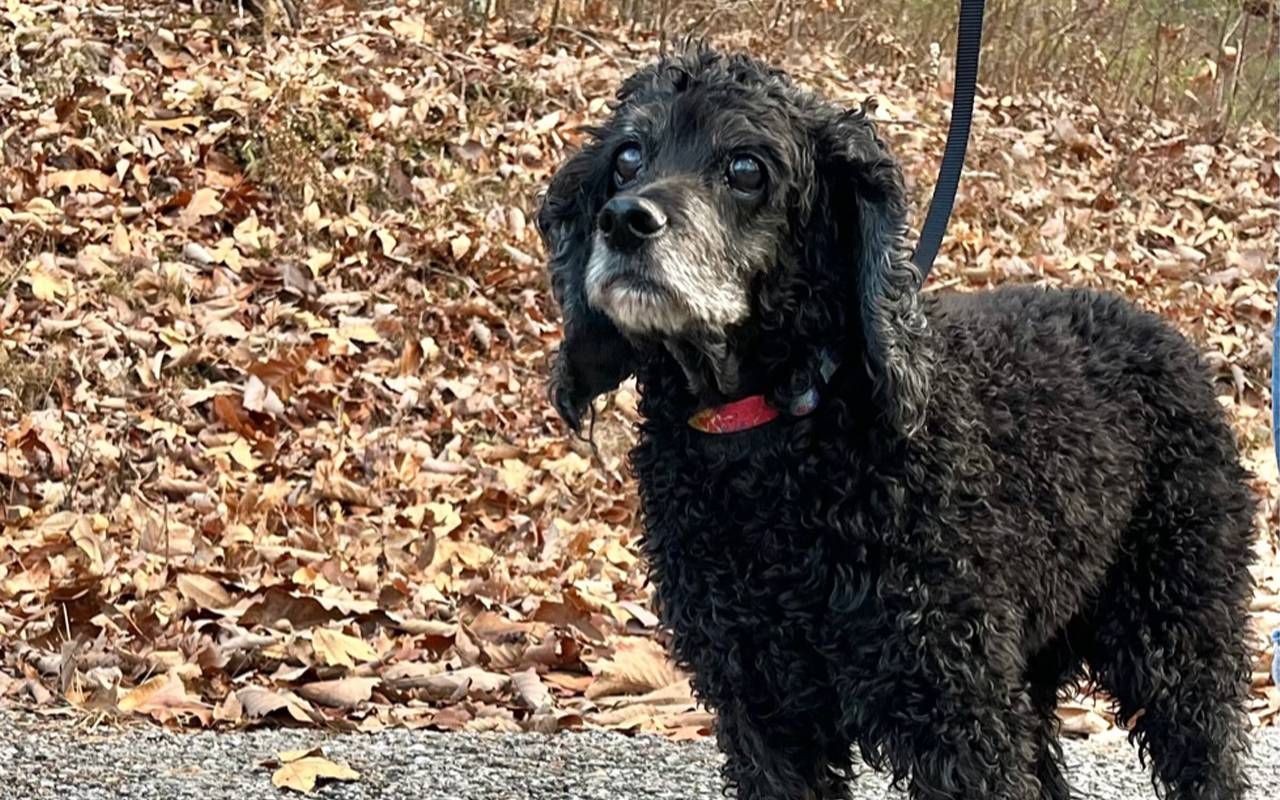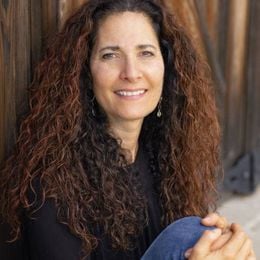The Secret Life of Poodle
My dog's secret life alerts me to my mother's own secret life
About four years ago, at the juncture of no pandemic and Pandemic with a capital P, we adopted a little nine-year-old dog that had fallen on hard times. He was billed as a cockapoo (cocker spaniel and poodle) online, but it was obvious from the moment we saw him in person that he was all "poo."
Because of his advanced age, we named him Zayde, which is Hebrew for grandfather. But we have never called him anything other than "Poodle." It's a cute moniker with a playful ring to it. It is also a reminder to ourselves, I think, to be mindful of what we wish for, but to embrace what we get, because in the end, everything enriches us.

Poodle is a delight. He seems to be aging backward, to get bouncier and more playful as the years slide by. He flies from the high furniture in pursuit of the other dog, twirls in the air all the way from bedroom to kitchen in anticipation of breakfast, and rolls around so enthusiastically on the bed he's impossible to pet. He loves my husband, but he hero-worships me. It's hard not to gloat.
Poodle is a delight. He seems to be aging backward, to get bouncier and more playful as the years slide by.
Who Poodle doesn't love is every other person on the planet. Because of this, every dinner invitation to our house includes a warning not to look at Poodle in the eye or, heaven forbid, offer a chin scratch, because if you do either of these, he will lose his little mind.
Whether he actually hates everyone who's not a part of his inner circle, or he is just fearful, is something only he can answer, but what it comes down to is that no one but us knows his silly, playful, adoring side, and no one ever will.
"It's like Poodle has a secret life," my husband said one recent evening, after our dinner guests had left.
Poodle had spent half the evening under my chair at the dinner table, and the other half wedged into the microscopic space between my ribcage and the arm of the sofa, glaring at our friends across the living room.
Once they left, he exploded in a circus of twirling madness and squeaker toy surprise attacks, followed by a frenzy of bed-rolling that left every pillow on the floor and the sheets in disarray, and ending fifteen minutes later in a deep, deathlike slumber.
Poodle Saves the Best for Us
My husband is right. We can tell people what Poodle is like when he's home alone with us — the antics, the affection, the unbridled hilarity — but we can't make them believe us. Which hardly matters, unless we are trying to rehome him, which we are not.
It's fine that Poodle saves the best of himself for us. In fact, it's probably great.
It's fine that Poodle saves the best of himself for us. In fact, it's probably great. I would hope my husband does the same for me, and I for him. Nothing used to irk me more than when my parents' friends would tell me how warm and entertaining my dad was, because as a child, I only saw weary and gloomy Dad. What a loss for both of us.
The idea of secret lives came up again a few weeks ago when my husband and I were eating lunch with my mother at a pizza restaurant. In the past, my mother, owing to strict, impenetrable ideas about what she should and should not eat in order to retain a throttlehold on her already low weight, would never have agreed to lunch at a pizza restaurant.
These days, however, due to the advancement of Alzheimer's, she is much less rigid and even childlike at times. My husband and I watched incredulously as she slid a fat triangle of pizza onto her plate, folded it in half, and ate it with never-before-witnessed delight.
'I Feel Like I Need to be Introduced to Myself'
It was a thing of miracles, seeing my mother eat with gusto something she had craved but denied herself all her life until this particular moment in her 94th year, when she found herself suddenly free of restriction. I wondered if she even remembered all the decades of denying herself pizza, or whether she believed the person she was at that moment — voracious, and indulging without guilt or regret — was who she'd always been.
Like Poodle, my mother also has a secret life, the difference being that the dog has a life that is unknown to others, while my mother has a life that is unknown to herself.
"I feel like I need to be introduced to myself," my mother has said on two different occasions recently. "Like there's a part of me I don't know." She said this laughingly.
She's right; there is a part of herself she doesn't know. If she has a fleeting idea that she is sometimes confused or acting in a way inconsistent with her previous 93 years, that idea is quickly erased from her mind. She does not remember what she does not remember.
Like Poodle, my mother also has a secret life, the difference being that the dog has a life that is unknown to others, while my mother has a life that is unknown to herself. In some ways, this is one of those gifts you don't know to wish for: that your mother's memory might erase itself to the point where we alone are privy to her secret life of amnesia, while she herself stands at the door, eager to meet the new woman on the other side.
Editor’s note: This story originally appeared in the Chattanooga Times Free Press.

Read More

